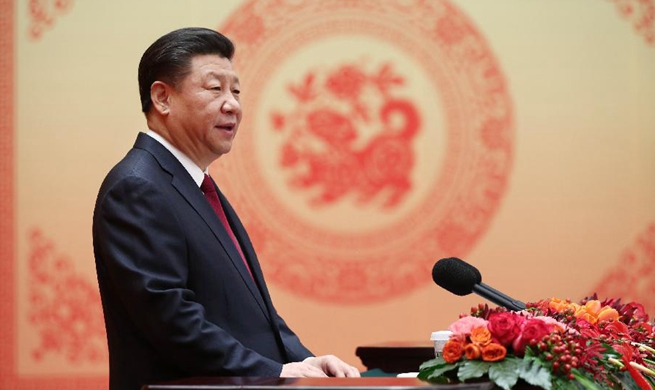BERLIN, Feb. 14 (Xinhua) -- Subsidies under the German Renewable Energy Sources Act (EEG) have risen to their highest-ever monthly level in January, electricity network operators revealed Tuesday.
More than 2.3 billion euros (about 2.8 billion U.S. dollars) were paid out in EEG subsidies to network operators last month, an increase of around 10 percent compared to 2.05 billion euros (about 2.5 billion dollars) in January 2017.
The law to promote
The growing number of German wind-, photovoltaic- and biogas energy producers were forwarded 1.98 billion euros (about 2.4 billion dollars) out of the total of 2.3 billion euros (about 2.8 billion dollars), marking an increase of 450 million euros (about 556 million dollars) compared to the previous month. Subsidy flows to energy generators are affected by seasonal trends, with relatively expensive solar energy producers receiving the bulk of their funds in the summer. As a consequence, subsidy inflows were nearly half a billion euros higher than outflows in January. The net reserve held by the government in special EEG accounts rose to an unprecedented monthly level of 4.4 billion euros (5.4 billion dollars). Alexander Bade, project manager at r2b energy consulting, said "we expect overall subsidies for renewables in Germany to rise even further over the next years, most likely peaking in 2020 or 2021." Germany's prospective new government has vowed to intensify its efforts to transition to a more environmentally-friendly economy. The recent "grand coalition" agreement between the Christian Democratic Union, Christian Social Union and German Social Democrats includes plans to double the share of renewable energy consumption from currently 35 percent to 65 percent. Amongst others, the parties intend to achieve this ambitious goal by holding public tenders for the construction of new renewable power plants with a capacity of up to 8,000 Megawatt. At the same time, however, the German government has proposed a radical measure on Tuesday to lower vehicle emissions in cities which would benefit its citizens financially. In order to prevent legal action by the European Commission (EC) in response to Germany's failure to comply with European Union urban air quality regulations, Berlin is mulling making local public transportation free of charge. Unless averted, the EC's challenge before the European Court of Justice could force German policymakers to impose outright driving bans.

















